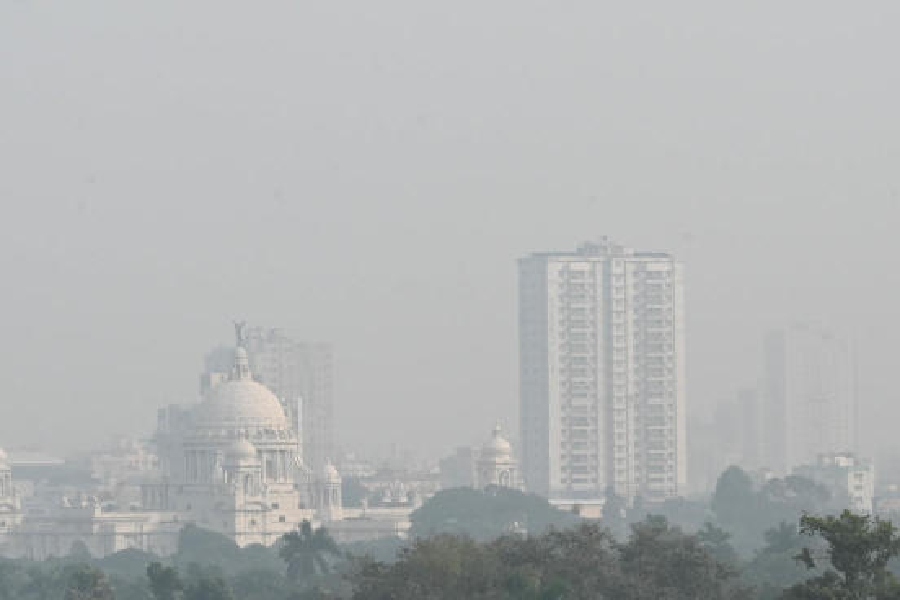The chill is back and with it the city’s air quality has dipped. At 6pm on Sunday, four out of the seven air quality monitoring stations in Kolkata recorded “very poor” air quality.
Two stations recorded “poor” air and one station reported “moderate” air.
The monitoring stations that recorded “very poor” air are located at Ballygunge, Fort William, Jadavpur and the Victoria Memorial.
The stations at Rabindra Sarobar and Bidhannagar recorded “poor” air quality and the one on the Rabindra Bharati University campus on BT Road recorded “moderate” air.
The city’s air quality was better before the current spell of chill set in. At 6pm on January 7, for instance, five stations recorded “poor” air and two “moderate” air.
At 6pm on December 31, five stations recorded “moderate” air and two reported “poor” air.
According to the National Air Quality Index, “very poor” air can trigger “respiratory illness on prolonged exposure”.
“Poor” air can cause “breathing discomfort to most people on prolonged exposure” and “moderate” air can cause “breathing discomfort to the people with lungs, asthma and heart diseases”.
The air quality worsened as the day progressed. At 11am on Sunday, six out of the seven monitoring stations reported “poor” air and one reported “moderate” air. But by the evening, the air quality around four stations worsened to “very poor”.
An official at the state pollution control board (PCB) said the air quality measured at any point of time is an average of the air quality in the place over the previous 24 hours.
Another PCB official said the drop in the air quality in the between late morning and evening can be explained by the fact that more pollutants are released because of human activities during the two periods.
Besides, low temperatures in the morning and the evening, compared with the afternoon, lead to pollutants getting trapped closer to the ground.
“Plying of vehicles result in resuspension of dust, which does not get dispersed because of low windspeed during winter. Plus, more pollutants are added by burning of fuel and other activities during the course of the day. Add to that the fact that the mercury keeps dropping as the sun sets,” the official said.
Scientists said that during winter, the air close to the ground is not warm enough to rise to a greater height, resulting in trapping of pollutants near the surface.
The same volume of pollutants is released into the air during summer, too, but it gets dispersed as the warm air in contact with the ground rise, carrying the toxins with it.
Besides, the wind velocity is more during summer than during winter. During the monsoon, the pollutants are washed away by rain.
The impact of moderate air is limited to those with lungs and heart ailments, but once the air quality becomes poor, more people get affected.
“Breathing discomfort, which is triggered by poor air, can lead to runny nose, stuffed nose, dry cough, cough with phlegm and chest discomfort,” said pulmonologist Arup Halder.
But prolonged exposure to very poor air can lead to cardiovascular or respiratory illness.
